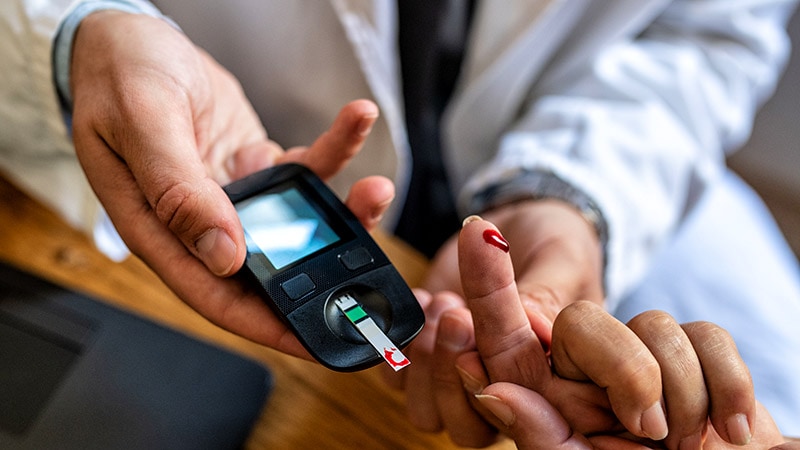Takeaway
- Patients with type 2 diabetes mellitus (T2DM) and incident hypoglycaemia are at increased risk for any fracture and fragility fracture compared with those without hypoglycaemia.
- Treatment strategies to reduce the risk for hypoglycaemia may reduce fracture risk.
Why this matters
- Finding may be clinically relevant when individualising targets for glycaemic control and optimising the selection of antidiabetic treatments.
Study design
- A population-based, retrospective open cohort study evaluated data of 41,163 patients with T2DM, with (n=14,147) and without (n=27,016) documented hypoglycaemia using The Health Improvement Network database.
- Primary outcome included any fracture; secondary outcome was fragility fracture.
- Funding: None disclosed.
Key results
- Patients with T2DM and without documented hypoglycaemia vs those with documented hypoglycaemia were at increased risk for:
- Any fracture (adjusted incidence rate ratio [aIRR], 1.20; P<.0001).
- Fragility fracture (aIRR, 1.24; P<.0001).
- Patients with incident T2DM and documented hypoglycaemia vs those without documented hypoglycaemia were at increased risk for:
- Any fracture (aIRR, 1.26; P=.004).
- Fragility fracture (aIRR, 1.33: P=.007).
Limitations
- Retrospective design.
- Risk of bias.
References
References



